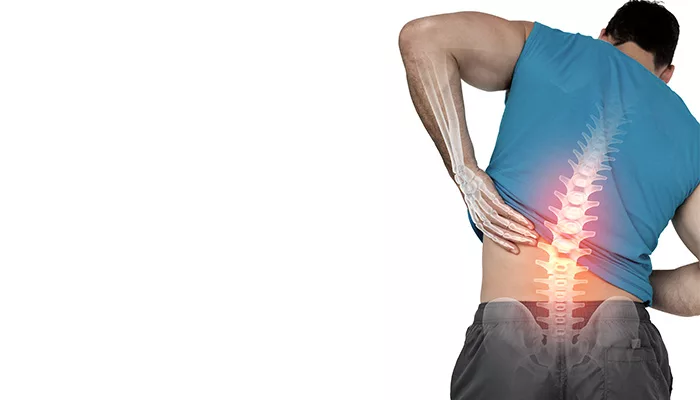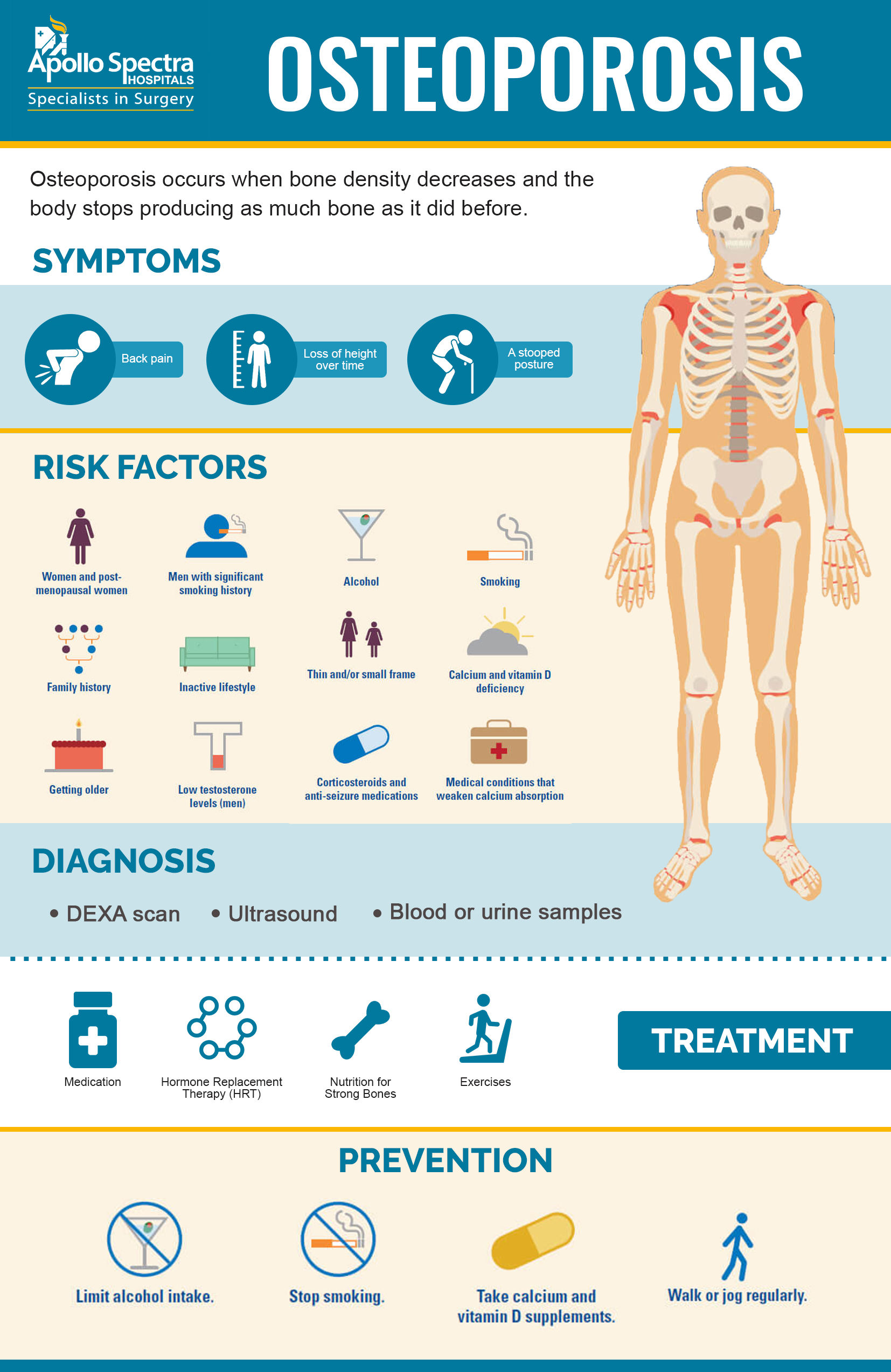Osteoporosis Causes, Symptoms, Treatment & Diet
May 15, 2019
Osteoporosis is a condition that develops when the density of the bone decreases and the production of the bone is significantly reduced. It affects both males and females. But, females, especially after menopause, are at a higher risk of developing osteoporosis. This is due to the sudden decrease in the levels of the estrogen that usually protects against osteoporosis. As you age, the bones start to become weak and their density reduces leading to a higher risk of a fracture even by a small fall or minor knock.

Symptoms Osteoporosis
In the early stages of bone loss, there are no visible symptoms. But once the bone gets weakened by Osteoporosis, the following symptoms might occur:
- Stooped posture
- Back pain due to a collapsed or fractured vertebra
- A bone fracture occurs due to a minor fall
- Loss of height
You should consult a doctor regarding osteoporosis if you took corticosteroids for several months or are going through early menopause. Also, if either of your parents had hip fractures, you should see a doctor
Causes
Your body is constantly breaking down old bones and making new bone. When you are young, this process is much faster resulting in increased bone mass. At their 20s, people reach the peak of their body mass. As we start to grow old, this process becomes slow and bone mass is lost faster than the body can produce. Whether you will develop osteoporosis depends on how you gained mass in your youth. If you have a higher peak bone mass, you will have more bone mass in the bank and you will be less likely to develop this condition.
Risk factors of Osteoporosis
There are certain factors that put you at a higher risk of developing the condition.
- Unchangeable risks
- Sex – Women are more likely to develop the condition
- Age – The older you get, the greater the risk
- Race – White or Asian people are at a greater risk of developing the condition.
- Family history – If your mother or father had a hip fracture, or have a close relative with the condition, you are more likely to develop this condition.
- Body frame – People with small body frames have less bone mass to draw making them more vulnerable to osteoporosis.
- Hormone levels
Little or too much hormones can increase the risk of osteoporosis
- Sex hormones – Low levels of sex hormone can cause weakened bones.
- Thyroid problems – High level of thyroid hormone can cause bone loss.
- Other glands – Overactive adrenal and parathyroid glands have been associated with osteoporosis.
- Dietary factors
Here are some dietary factors responsible for making you more vulnerable to osteoporosis:
- Low calcium intake – Low calcium results in early bone loss, reduced bone density and an increased risk of fractures.
- Eating disorders – Being underweight and restricting food intake can weaken bones.
- Gastrointestinal surgery – If you had your stomach’s size reduced or a part of your intestine removed, you are at a higher risk of developing the condition. This is because the surface area available for the absorption of nutrients is limited.
- Medications
If you are taking any medication to combat one of the following conditions, you might be at a higher risk of developing osteoporosis:
- Gastric reflux
- Cancer
- Seizures
- Transplant rejection
Also, you are vulnerable to osteoporosis, if you have any of the following conditions:
- Inflammatory bowel disease
- Celiac disease
- Kidney or liver disease
- Lupus
- Rheumatoid arthritis
- Multiple myeloma
- Lifestyle choices
Certain lifestyle choices like sedentary lifestyle, tobacco use, and excessive alcohol consumption increase your risk of osteoporosis.
Treatment
For both men and women, the treatment begins with medications.
Your doctor will prescribe you medications. There might be some side effects to these medications like abdominal pain, heartburn-like symptoms, and nausea.
Hormone-related therapy
You can try going for estrogen therapy. It will help women restore their bone health. However, it also increases the risk of breast cancer, heart disease, blood clots, and endometrial cancer.
Lifestyle and home remedies
A few minor lifestyle changes can significantly improve your condition. These changes include:
- Avoiding excess alcohol as it decreases bone formation.
- Quitting smoking as it increases the rate of bone loss.
- Try avoiding falls by wearing low-heeled shoes with nonslip soles. Also, make sure that there are no slippery surfaces in your house.
- Get enough vitamin D and calcium intake
- Regular exercise
Osteoporosis is a condition that is developed when the density of the bone decreases and the production of the bone is significantly reduced. It affects both males and females.
NOTICE BOARD
CONTACT US
CONTACT US
 Book Appointment
Book Appointment


.svg)
.svg)
.svg)
.svg)








